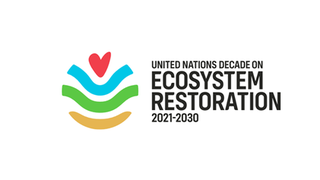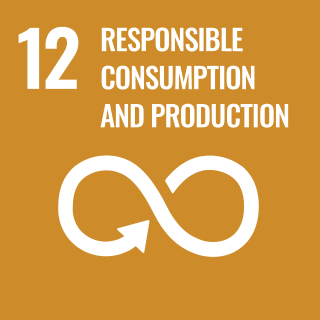Related Research Articles

The Food and Agriculture Organization of the United Nations (FAO) is a specialized agency of the United Nations that leads international efforts to defeat hunger and improve nutrition and food security. Its Latin motto, fiat panis, translates to "let there be bread". It was founded on 16 October 1945.

The United Nations Environment Programme (UNEP) is responsible for coordinating responses to environmental issues within the United Nations system. It was established by Maurice Strong, its first director, after the United Nations Conference on the Human Environment in Stockholm in June 1972. Its mandate is to provide leadership, deliver science and develop solutions on a wide range of issues, including climate change, the management of marine and terrestrial ecosystems, and green economic development. The organization also develops international environmental agreements; publishes and promotes environmental science and helps national governments achieve environmental targets.

In politics, humanitarian aid, and the social sciences, hunger is defined as a condition in which a person does not have the physical or financial capability to eat sufficient food to meet basic nutritional needs for a sustained period. In the field of hunger relief, the term hunger is used in a sense that goes beyond the common desire for food that all humans experience, also known as an appetite. The most extreme form of hunger, when malnutrition is widespread, and when people have started dying of starvation through lack of access to sufficient, nutritious food, leads to a declaration of famine.

Food security is the state of having reliable access to a sufficient quantity of affordable, nutritious food. The availability of food for people of any class, gender or religion is another element of food security. Similarly, household food security is considered to exist when all the members of a family, at all times, have access to enough food for an active, healthy life. Individuals who are food-secure do not live in hunger or fear of starvation. Food security includes resilience to future disruptions of food supply. Such a disruption could occur due to various risk factors such as droughts and floods, shipping disruptions, fuel shortages, economic instability, and wars. Food insecurity is the opposite of food security: a state where there is only limited or uncertain availability of suitable food.

Environmental vegetarianism is the practice of vegetarianism that is motivated by the desire to create a sustainable diet, which avoids the negative environmental impact of meat production. Livestock as a whole is estimated to be responsible for around 15% of global greenhouse gas emissions. As a result, significant reduction in meat consumption has been advocated by, among others, the Intergovernmental Panel on Climate Change in their 2019 special report and as part of the 2017 World Scientists' Warning to Humanity.

Biodegradable waste includes any organic matter in waste which can be broken down into carbon dioxide, water, methane, compost, humus, and simple organic molecules by micro-organisms and other living things by composting, aerobic digestion, anaerobic digestion or similar processes. It mainly includes kitchen waste, ash, soil, dung and other plant matter. In waste management, it also includes some inorganic materials which can be decomposed by bacteria. Such materials include gypsum and its products such as plasterboard and other simple sulfates which can be decomposed by sulfate reducing bacteria to yield hydrogen sulfide in anaerobic land-fill conditions.

Food loss and waste is food that is not eaten. The causes of food waste or loss are numerous and occur throughout the food system, during production, processing, distribution, retail and food service sales, and consumption. Overall, about one-third of the world's food is thrown away. A similar amount is lost on top of that by feeding human-edible food to farm animals. A 2021 meta-analysis, that did not include food lost during production, by the United Nations Environment Programme found that food waste was a challenge in all countries at all levels of economic development. The analysis estimated that global food waste was 931 million tonnes of food waste across three sectors: 61 percent from households, 26 percent from food service and 13 percent from retail.

The year 2011 was declared the International Year of Forests by the United Nations to raise awareness and strengthen the sustainable management, conservation and sustainable development of all types of forests for the benefit of current and future generations.

International Tea Day is observed annually on May 21, according to the United Nations. The concerning resolution was adopted on December 21, 2019, and calls on the United Nations Food and Agriculture Organization (FAO) to lead the observance of the Day.
At the global scale sustainability and environmental management involves managing the oceans, freshwater systems, land and atmosphere, according to sustainability principles.
Safe Planet: the United Nations Campaign for Responsibility on Hazardous Chemicals and Wastes is the UN Environment Programme (UNEP) and UN Food and Agricultural Organization-led global public awareness and outreach campaign for ensuring the safety of human health and the environment against hazardous chemicals and wastes.

Forest restoration is defined as "actions to re-instate ecological processes, which accelerate recovery of forest structure, ecological functioning and biodiversity levels towards those typical of climax forest", i.e. the end-stage of natural forest succession. Climax forests are relatively stable ecosystems that have developed the maximum biomass, structural complexity and species diversity that are possible within the limits imposed by climate and soil and without continued disturbance from humans. Climax forest is therefore the target ecosystem, which defines the ultimate aim of forest restoration. Since climate is a major factor that determines climax forest composition, global climate change may result in changing restoration aims. Additionally, the potential impacts of climate change on restoration goals must be taken into account, as changes in temperature and precipitation patterns may alter the composition and distribution of climax forests.

World Milk Day is an international day established by the Food and Agriculture Organization (FAO) of the United Nations to recognize the importance of milk as a global food. It has been observed on June 1 each year since 2001. The day is intended to provide an opportunity to bring attention to activities that are connected with the dairy sector.
Agricultural expansion describes the growth of agricultural land especially in the 20th and 21st centuries.

The United Nations Decade on Ecosystem Restoration runs from 2021 to 2030. Similar to other nature related international decades, its purpose is to promote the United Nation's environmental goals. Specifically, to facilitate global cooperation for the restoration of degraded and destroyed ecosystems. Along with fostering efforts to combat climate change, safeguard biodiversity, food security, and water supply. While much focus is on promoting restoration activity by national governments, the UN also wishes to promote such efforts from other actors, ranging from the private sector and NGOs to regular individuals.

Sustainable Development Goal 15 is about "Life on land". One of the 17 Sustainable Development Goals established by the United Nations in 2015, the official wording is: "Protect, restore and promote sustainable use of terrestrial ecosystems, sustainably manage forests, combat desertification, and halt and reverse land degradation and halt biodiversity loss". The Goal has 12 targets to be achieved by 2030. Progress towards targets will be measured by 14 indicators.

Sustainable Development Goal 12, titled "responsible consumption and production", is one of the 17 Sustainable Development Goals established by the United Nations in 2015. The official wording of SDG 12 is "Ensure sustainable consumption and production patterns". SDG 12 is meant to ensure good use of resources, improve energy efficiency and sustainable infrastructure, provide access to basic services, create green and decent jobs, and ensure a better quality of life for all. SDG 12 has 11 targets to be achieved by at least 2030, and progress towards the targets is measured using 13 indicators.

Sustainable Development Goal 2 aims to achieve "zero hunger". It is one of the 17 Sustainable Development Goals established by the United Nations in 2015. The official wording is: "End hunger, achieve food security and improved nutrition and promote sustainable agriculture". SDG 2 highlights the "complex inter-linkages between food security, nutrition, rural transformation and sustainable agriculture". According to the United Nations, there are around 690 million people who are hungry, which accounts for slightly less than 10 percent of the world population. One in every nine people goes to bed hungry each night, including 20 million people currently at risk of famine in South Sudan, Somalia, Yemen and Nigeria.
Barcelona is a coastal city located in Catalonia, Spain, and it is a major contributor to food waste. Every year, tons of perfectly good food is discarded or thrown away by consumers and businesses, often ending up in landfills and contributing to environmental problems such as greenhouse gas emissions and pollution.
The Food Bank of Indonesia is a non-profit foundation operating in the social sector. Located in Jakarta, the Food Bank of Indonesia is the first food bank in the country actively working to provide access to food and eradicate hunger in various regions across Indonesia. FOI also supports the country in achieving Sustainable Development Goals (SDGs), by promoting food sovereignty and implementing responsible patterns of production and consumption.
References
- ↑ "What's the Difference Between Food Waste and Food Loss?". The Spoon. 23 September 2020. Retrieved 19 October 2021.
- ↑ "International Day of Awareness of Food Loss and Waste". European Commission . Retrieved 19 October 2021.
 Text was copied from this source, which is available under a Creative Commons Attribution 4.0 International License.
Text was copied from this source, which is available under a Creative Commons Attribution 4.0 International License. - ↑ "International Day of Awareness on Food Loss and Waste Reduction". Riverine Herald. 24 September 2021. Retrieved 19 October 2021.
- ↑ Varela, Vicky Brown (28 September 2021). "12 Apps Preventing Food Waste and Protecting the Planet". Food Tank . Retrieved 19 October 2021.
- ↑ "How technology can help avert food waste". Mirage News. 29 September 2021. Retrieved 19 October 2021.
- ↑ Everett, Helena (16 October 2021). "Bonnie Wright Teams Up with Food Waste App Too Good to Go". MuggleNet. Retrieved 19 October 2021.
- ↑ "Sept. 29 is International Day of Awareness on Food Loss and Waste Reduction". The Spoon. 28 September 2020. Retrieved 19 October 2021.